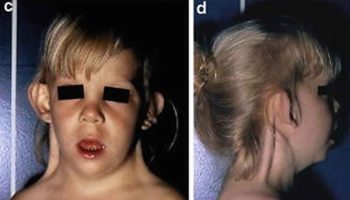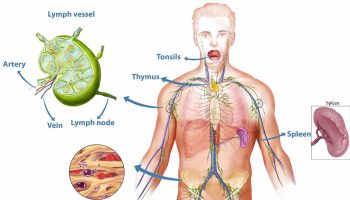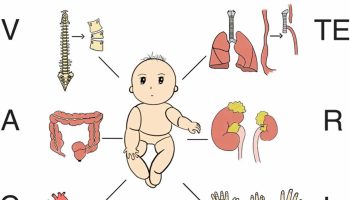Contents
What is intrinsic factor
Intrinsic factor is a protein that helps your small intestines absorb vitamin B12. Intrinsic factor is made by the parietal cells that line your stomach wall. During digestion, stomach acids release vitamin B12 from food and bind to intrinsic factor to form a complex. The formation of this complex is necessary for the absorption of vitamin B12 in the small intestine. After attaching, intrinsic factor and B12 travel to the intestines to be absorbed into the bloodstream.
Among having functional roles in the brain and nervous system, vitamin B12 is important in the production of red blood cells. Without sufficient intrinsic factor, vitamin B12 goes largely unabsorbed and your body cannot produce enough normal red blood cells, leading to anemia. Besides anemia, decrease in the numbers of neutrophils and platelets (neutropenia, thrombocytopenia) may also occur.
Some people do not make enough intrinsic factor or have a condition that destroys it. If your body does not make enough intrinsic factor, you can develop a type of vitamin B12 deficiency called pernicious anemia. This is primarily an autoimmune condition that occurs when your body’s immune system targets its own tissues and develops antibodies directed against the parietal cells and/or the intrinsic factor. These antibodies can damage the parietal cells and disrupt intrinsic factor production or prevent intrinsic factor from carrying out its biological function.
Surgical removal of the stomach and certain other health conditions can also cause you to stop making intrinsic factor.
What is pernicious anemia?
Pernicious anemia is a decrease in red blood cells that occurs when the intestines cannot properly absorb vitamin B12. Your body needs vitamin B12 to make red blood cells. You get vitamin B12 from eating foods such as meat, poultry, shellfish, eggs, and dairy products.
Intrinsic factor binds vitamin B12 so that it can be absorbed in the small intestines. Intrinsic factor protein is released by cells in the stomach. When the stomach does not make enough intrinsic factor, the intestine cannot properly absorb vitamin B12.
Pernicious anemia causes
You are more likely to develop pernicious anemia if you:
- Are Scandinavian or Northern European
- Have a family history of pernicious anemia
Common causes of pernicious anemia include:
- Weakened stomach lining (atrophic gastritis)
- An autoimmune condition in which the body’s immune system attacks the actual intrinsic factor protein or the cells in the lining of your stomach that make it.
In rare cases, pernicious anemia is passed down through families. This is called congenital pernicious anemia. Babies with this type of anemia do not make enough intrinsic factor. Or they cannot properly absorb vitamin B12 in the small intestine.
Certain diseases can also raise your risk of developing pernicious anemia. They include:
- Addison disease
- Graves disease
- Hypoparathyroidism
- Hypothyroidism
- Myasthenia gravis
- Loss of normal function of ovaries before 40 years of age (primary ovarian failure)
- Type 1 diabetes
- Testicular dysfunction
- Vitiligo
- Sjögren syndrome
- Hashimoto’s disease
- Celiac disease
Pernicious anemia can also occur after gastric bypass surgery.
Pernicious anemia symptoms
In adults, symptoms of pernicious anemia are usually not seen until after age 30. The average age of diagnosis is age 60.
Some people do not have symptoms. Symptoms may be mild.
Symptoms of pernicious anemia can include:
- Diarrhea or constipation
- Nausea
- Vomiting
- Fatigue, lack of energy, or lightheadedness when standing up or with exertion
- Loss of appetite
- Pale skin (mild jaundice)
- Shortness of breath, mostly during exercise
- Heartburn
- Swollen, red tongue or bleeding gums
If you have a low vitamin B12 level for a long time, you can have nervous system damage. Symptoms can include:
- Confusion
- Short-term memory loss
- Depression
- Loss of balance
- Numbness and tingling in the hands and feet
- Problems concentrating
- Irritability
- Hallucinations
- Delusions
- Optic nerve atrophy
Pernicious anemia possible complications
People with pernicious anemia may have gastric polyps. They are also more likely to develop gastric cancer and gastric carcinoid tumors.
People with pernicious anemia are more likely to have fractures of the back, upper leg, and upper forearm.
Brain and nervous system problems may continue or be permanent if treatment is delayed.
A woman with a low B12 level may have a false positive Pap smear. This is because vitamin B12 deficiency affects the way certain cells (epithelial cells) in the cervix look.
Pernicious anemia diagnosis
Your health care provider will perform a physical exam. Tests that may be done include:
- Bone marrow examination (only needed if diagnosis is unclear)
- Complete blood count (CBC)
- Reticulocyte count
- LDH level
- Serum bilirubin
- Methylmalonic acid (MMA) level
- Homocysteine level (amino acid found in blood)
- Vitamin B12 level
- Levels of antibodies against IF or the cells which make IF
Pernicious anemia treatment
The goal of treatment is to increase your vitamin B12 level:
- Treatment involves a shot of vitamin B12 once a month. People with severely low levels of B12 may need more shots in the beginning.
- Some people may be adequately treated by taking large doses of vitamin B12 supplements by mouth.
- A certain type of vitamin B12 may be given through the nose.
Pernicious anemia prognosis
Most people often do well with treatment.
It is important to start treatment early. Nerve damage can be permanent if treatment does not start within 6 months of symptoms.
What is intrinsic factor deficiency?
Intrinsic factor deficiency is also called congenital pernicious anemi, is a rare disorder characterized by the lack of gastric intrinsic factor in the presence of normal acid secretion and mucosal cytology and the absence of intrinsic factor antibodies that are found in the acquired form of pernicious anemia. Intrinsic factor deficiency is caused by changes (mutations) in the GIF gene and is inherited in an autosomal recessive manner 1.
Most congenital pernicious anemia (intrinsic factor deficiency) affected people develop signs and symptoms of the condition before age 5 years which may include failure to thrive and symptoms related to anemia (i.e. fatigue, pale skin, etc). Without early diagnosis and treatment, nervous system damage may occur which can be associated with confusion; depression; and numbness or tingling in the hands and/or feet 2. Treatment generally consists of vitamin B12 injections 2.
Intrinsic factor antibody
Intrinsic factor antibodies are proteins produced by your immune system that are associated with pernicious anemia (vitamin B12 deficiency anemia). A blood test can detects intrinsic factor antibody (IF antibody) circulating in your blood.
Two types of intrinsic factor antibodies (IF antibodies) can be tested by the laboratory:
- Intrinsic factor blocking antibody (type 1), which blocks the binding site of vitamin B12 to intrinsic factor. This is more specific for pernicious anemia and is the one that is usually tested.
- Intrinsic factor binding antibody (type 2), which interferes with the uptake of the vitamin B12-instrinsic factor complex in the small intestine.
Intrinsic factor test
An intrinsic factor antibody (IF antibody) test may be used to help determine the cause of your vitamin B12 deficiency and to confirm a diagnosis of pernicious anemia.
Pernicious anemia is caused by vitamin B12 deficiency due to a lack of intrinsic factor. This condition occurs primarily when the body’s immune system targets its own tissues and develops antibodies directed against the parietal cells and/or the intrinsic factor. These antibodies can damage the parietal cells and disrupt intrinsic factor production or prevent intrinsic factor from carrying out its biological function. Intrinsic factor binds to vitamin B12, forming a complex and allowing its absorption in the small intestine.
Intrinsic factor antibody testing is usually used in follow up after other laboratory tests, such as a vitamin B12 test, a methylmalonic acid test and a complete blood count (CBC), have established that a person has a vitamin B12 deficiency and associated anemia and/or neuropathy.
It may be used in conjunction with a test for parietal cell antibodies to aid in establishing a diagnosis.
When is intrinsic factor antibody test ordered?
The intrinsic factor antibody test is not a frequently ordered test. It may be ordered when a person has a vitamin B12 deficiency and when pernicious anemia is suspected, as when a person has signs and symptoms such as:
- Paleness
- Weakness, fatigue
- Numbness and tingling in the feet and/or hands
- Larger than normal red blood cells (RBCs); sometimes large red blood cells are detected before the other signs and symptoms emerge, for example, with a complete blood count (CBC) during routine testing for a health examination.
These findings usually prompt vitamin B12 and folate testing and may lead to methylmalonic acid testing (an early indicator of vitamin B12 deficiency).
When a person has a decreased vitamin B12 level and increased methylmalonic acid and homocysteine levels, an intrinsic factor antibody test is typically ordered.
What does the intrinsic factor antibody test result mean?
The results of intrinsic factor antibody tests are often taken into consideration with the results of other laboratory tests to help make a diagnosis. When a person has a decreased vitamin B12 level and/or increased methylmalonic acid and homocysteine levels and has intrinsic factor antibodies, then it is likely that the person has pernicious anemia.
A negative test result does not necessarily mean that a person does not have pernicious anemia. As many as half of those affected will not have intrinsic factor antibodies. When they are not present, your health practitioner may order a parietal cell antibody test to help establish the diagnosis. Parietal cell antibodies are not as specific as intrinsic factor antibodies. They are present in about 90% of those with pernicious anemia but may also be present in a variety of other conditions and in up to 10% of the general population.
A vitamin B12 injection within 48 hours of testing and, in some cases, within two weeks of testing can interfere with intrinsic factor antibody test results.
Some people with autoimmune diseases such as type 1 diabetes, Hashimoto thyroiditis, Addison disease or Graves disease may have intrinsic factor antibodies without having pernicious anemia. The intrinsic factor antibody test is not used to diagnose or monitor these conditions.
Vitamin B12-associated anemia may take several years to develop as a normal person typically has large stores of B12 in reserve. Symptoms tend to emerge only when these stores become depleted.
How to increase intrinsic factor?
You cannot increase the intrinsic factor, because the cause of your intrinsic factor deficiency can be due to your body’s immune system attacking the actual intrinsic factor protein or the cells in the lining of your stomach that make it. Or you may have atrophic gastritis or gastric bypass surgery which can also reduce the intrinsic factor. And in rare cases, pernicious anemia is passed down through families. This is called congenital pernicious anemia. Babies with this type of anemia do not make enough intrinsic factor. Or they cannot properly absorb vitamin B12 in the small intestine.
However, the associated vitamin B12 deficiency, can usually be successfully treated and managed by vitamin B12 supplementation.





